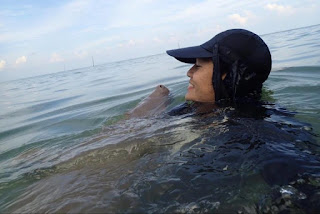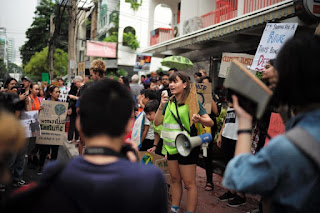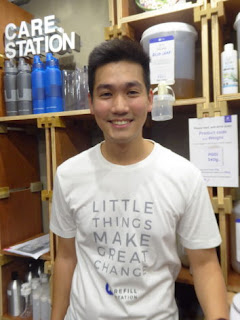I was excited to see this article published by Bangkok Coconuts. I feel it highlighted the connections between the human exploitation of nature and emerging new diseases - crucial to understanding the Coronavirus pandemic.
 |
| Experts consider bats to be high risk species when it comes to the emergence of new diseases. Photo: Freeland |
I was grateful to Steven Galster of the Bangkok based Freeland Foundation for taking the time to talk to me.
Here’s the lowdown: With wild animals smuggled through Bangkok’s Khlong Toei port, sold at Chatuchak Weekend Market and exported for sale onward; Thailand is a nexus for the global wildlife trade, and Galster thinks a law banning the commercial trade in wild animals may protect us from the next viral disaster.
 |
| Galster has been interviewed by a number of news organizations about Freeland's campaign to ban the commercial trade in wild animals. Image: Freeland. |
Not everyone agrees with Freeland and backs a blanket ban. Richard Thomas, spokesman for trade monitoring group Traffic, says total bans are a knee-jerk reaction that are extremely difficult to implement and enforce. He cites the drug trade as an example.
“If the underlying demand persists, it’ll be supplied,” Thomas said. Big players like the UN Environment Programme, or UNEP look to governments to manage things instead.
I certainly learned a lot about this troubling situation and received some great comment from readers both on and offline: 'Fascinating, terrifying and superbly written.'
I concluded the article by making the point that: we need to recognize the link between our commercial use of wild animals and new pandemics; to safeguard humanity's future health we should rethink our relationships with our fellow species.
Of course, reducing the risk of future pandemics is not the only reason we should follow this advice!
The original article is here, and it also appeared on Singapore's Yahoo Lifestyle site. Please take a look at the full piece.







